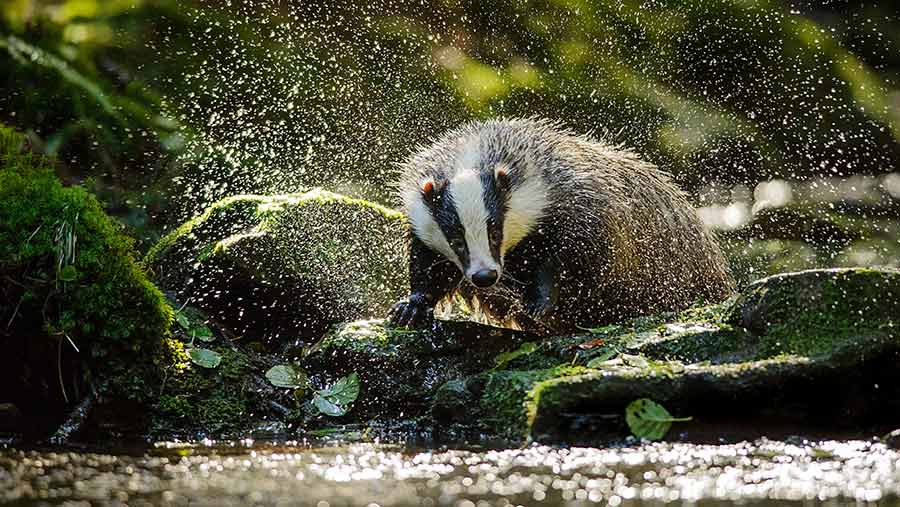Defra seeks views on targeted culling to tackle bovine TB
 © Stanislav Duben/Adobe Stock
© Stanislav Duben/Adobe Stock Defra is seeking views on targeted badger culling to tackle bovine TB in England where epidemiological assessments point to a reservoir of disease in wildlife.
The government had previously announced plans to phase out badger culling and transition towards vaccination of cattle and badgers as part of its 25-year strategy which seeks to eradicate the disease by 2038.
But a peer-reviewed scientific report on the badger control policy since 2013 and the first 52 areas where culling was carried out shows a reduction in rates of bovine TB breakdowns in cattle, down on average by 56% after four years of culling.
See also: Bovine TB cattle vaccine and skin test target date delayed
Defra has also revised the timetable for the introduction of a TB cattle vaccine and an associated diagnostic tool, which can distinguish between infected and vaccinated animals, known as the Diva test.
Researchers say they need more time to carry out further, expanded field trials on livestock farms in England and Wales to evaluate how the Diva test performs in cattle. As a result, Defra has had to push back the introduction of both tools from 2025 to simply “in the next few years”.
The existing badger culling policy of intensive and supplementary control will end by January 2026.
Five-week consultation
However, the five-week consultation on the “epi-culling” policy proposes to allow ministers to intervene and remove badgers in areas of England where a cluster of new TB herd breakdowns is linked to disease transmission in wildlife.
It seeks to retain badger culling as an option in targeted parts only of the High Risk and Edge areas, including much of south-west and central England.
Announcing the consultation, Defra secretary Steve Barclay said: “Bovine TB has taken a terrible toll on farmers, leading to the loss of highly-prized animals and, in the worst cases, valued herds.
“There are no easy answers in the battle against TB, but badger culling has proved highly effective and needs to remain a key part of our approach.
“Our strategy has led to a significant reduction in this insidious disease, which we will continue to cull in areas where the evidence confirms it is required, as well as making use of vaccinations.”
The consultation also seeks views on Defra taking over from Natural England as the licensor for culling licences issued under the policy, along with the intention to reduce the administrative burden placed on farming groups delivering badger culling and vaccination through the use of a single organisational licence.
Views are also sought on options for publishing additional information on the ibTB mapping app about animal and herd-level bovine TB risk – for example, the most recent TB test completed in the herd – to help those buying cattle to factor in such risks when sourcing new stock.
Reaction
NFU president Tom Bradshaw said bovine TB continued to cause “enormous emotional, mental and financial strain” to thousands of farming families across the country.
“We are pleased that this consultation will consider how local partnerships in targeted badger control areas, which will see a combination of culling, badger vaccination and on-farm biosecurity, are best deployed,” he added.
“The NFU will continue to work with its members and government to ensure a successful strategy to eradicate bovine TB continues to be based on sound science and evidence.”
The 12-month period ending September 2023 saw the number of new TB breakdowns in cattle at a near 20-year low. During this period, a total of 19,506 TB-infected cattle were slaughtered in England.
